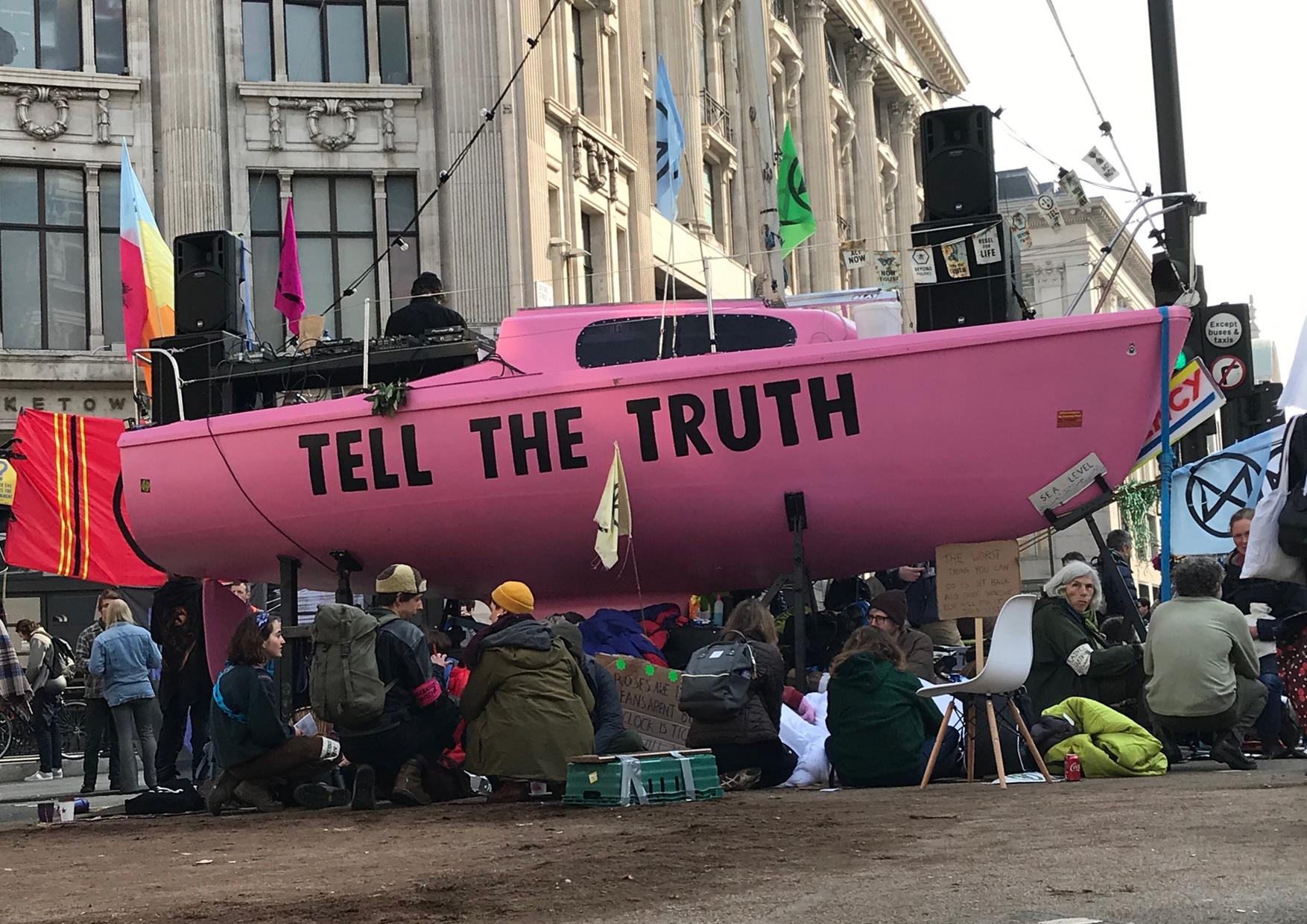Home secretary Priti Patel has defended the listing of Extinction Rebellion (XR) as an extremist ideology by anti-terrorism police on the same day a new poll shows overwhelming public support for radical changes to make the UK carbon neutral by 2030.
The non-violent climate activist group XR was listed as an extremist ideology alongside jihadist and neo-Nazi groups in a guide produced by counter-terrorism police instructing recipients to report concerns to the government’s anti-radicalisation programme, Prevent.
Patel told LBC radio that while she accepted XR was not a terrorist organisation it was important to look at “a range of security risks” with an assessment “based in terms of risk to the public, security risks, security threats.”
Unprecedented concern about climate crisis
The home secretary’s comments came just before the Independent published the results of a poll showing unprecedented levels of public concern about the climate crisis – with 70% of those asked supporting “radical change to end the UK’s net carbon emissions by the end of the decade.”
The government has committed to reaching net zero emissions by 2050 with legislation introduced by Theresa May’s government confirmed in Boris Johnson’s election manifesto.
However, activists and campaigners say the ambition is not enough to save the planet and XR led a series of demonstrations and protests around the world last year that brought many cities, including London to a halt.
XR are considering legal action after being included in the 12-page guide, produced by Counter Terrorism Policing South East (CTPSE), as an extremist ideology.
‘XR is about lawful protest and disruption to get publicity’
Sir Peter Fahy, the former head of Prevent said the listing of XR alongside neo-Nazis and jihadist groups in the document risked losing the confidence of communities for the government’s anti-terror programme.
Fahy told the Guardian: “Prevent is about stopping terrorist acts against people or property and XR is not in that territory at all.
“XR is about lawful protest and disruption to get publicity – it is very different from terrorist acts.”
Responding to the former chief constable of Greater Manchester comments, the home secretary told LBC: “Sir Peter Fahy has made one comment. Quite frankly, I look at a range of security risks.”
Replying as to whether she thought XR were a terrorist organisation, Patel said: “No, they’re obviously a protest organisation. But everything has to be based in terms of risk to the public, security risks, security threats. That is based on information from the police, and various intelligence that we will receive. That’s the proper thing to do. You develop your policy approach accordingly.”
‘This is not extremism, it is level-headedness’
The guide, titled “Safeguarding young people and adults from ideological extremism” has since been recalled by police who said including XR was an error.
However, lawyers for XR are writing to police to demand it is withdrawn completely, with a member of their legal strategy team, Tobias Garnett saying: “It is patently absurd to put a nonviolent movement of people urging the government to take action on the climate and ecological emergency on a list of extremist ideologies. This is not extremism, it is level-headedness in the face of scientific consensus and fires that now rage from Australia to the Amazon.”




